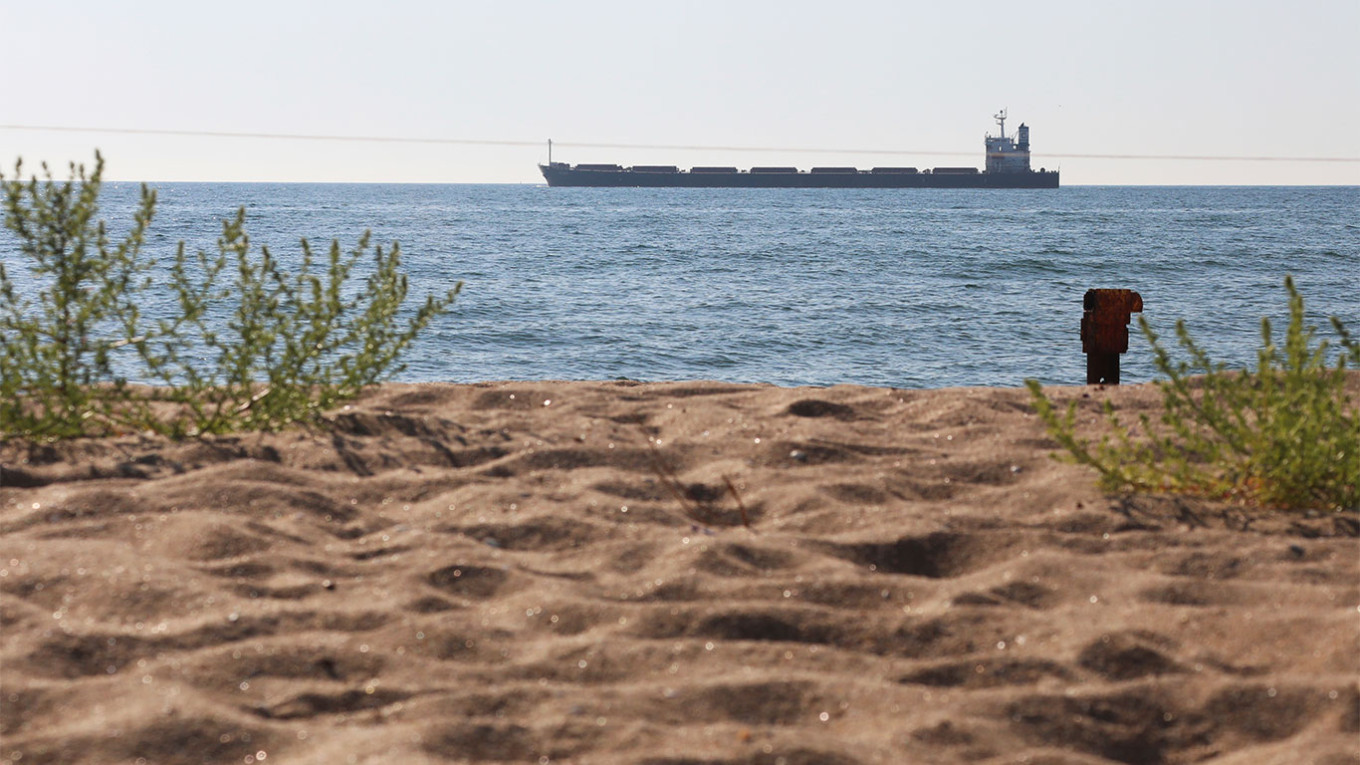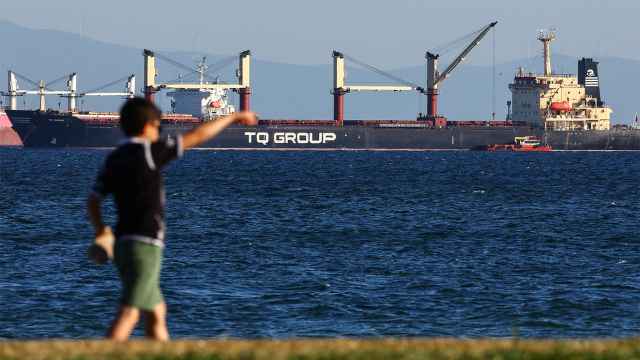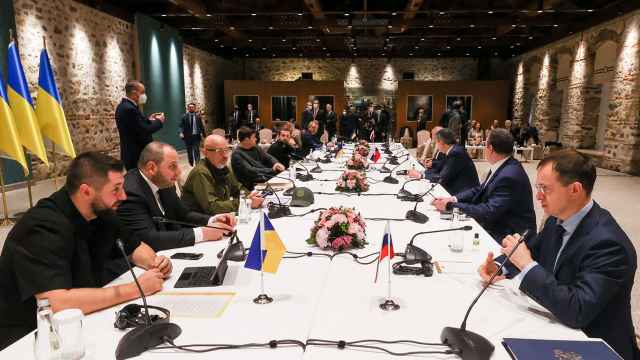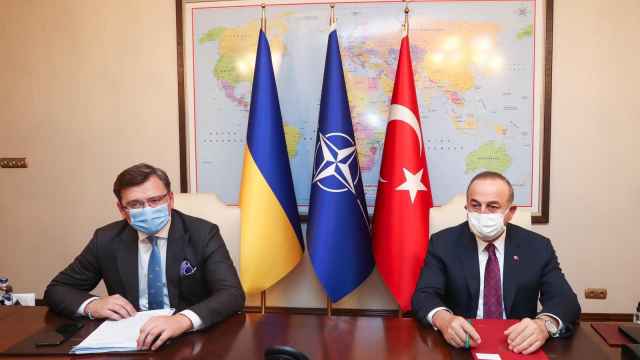A deal brokered by the UN and Turkey that allowed for the safe export of Ukrainian grain through the Black Sea is “de facto” over, the Kremlin said Monday.
“Unfortunately, the Russian part of these Black Sea agreements has not been implemented so far, so it’s terminated,” spokesman Dmitry Peskov told reporters.
“That’s the de facto situation,” Peskov said as quoted by Interfax.
Moscow had informed Turkey, Ukraine and the UN of Moscow’s “objection” to extending the grain deal, Russian Foreign Ministry spokeswoman Maria Zakharova told Interfax.
Ukrainian President Volodymyr Zelensky said that Kyiv was prepared to continue grain exports following the Kremlin's announcement.
"Even without the Russian Federation, everything must be done so that we can use this Black Sea corridor. We are not afraid. We have been approached by companies that own ships. They said that they are ready" to continue shipments, Zelensky said in comments distributed on social media by his spokesman Serhii Nykyforov.
The Black Sea grain initiative is automatically extended after it expires unless one of the parties objects.
Moscow has repeatedly threatened to pull out of the grain deal because of obstacles to Russia’s own grain and fertilizer exports.
Peskov said the decision to pull out of the deal was not linked to Monday’s deadly blast on the Crimea bridge, which connects the annexed peninsula to mainland Russia.
Moscow previously briefly suspended its participation in the deal after a drone attack on Russia’s Crimea-based naval fleet in October.
Moscow has agreed to three extensions of the Black Sea grain initiative after it was first reached in July 2023.
The last ship under the grain deal initiative departed a Ukrainian port on Sunday.
AFP contributed reporting.
A Message from The Moscow Times:
Dear readers,
We are facing unprecedented challenges. Russia's Prosecutor General's Office has designated The Moscow Times as an "undesirable" organization, criminalizing our work and putting our staff at risk of prosecution. This follows our earlier unjust labeling as a "foreign agent."
These actions are direct attempts to silence independent journalism in Russia. The authorities claim our work "discredits the decisions of the Russian leadership." We see things differently: we strive to provide accurate, unbiased reporting on Russia.
We, the journalists of The Moscow Times, refuse to be silenced. But to continue our work, we need your help.
Your support, no matter how small, makes a world of difference. If you can, please support us monthly starting from just $2. It's quick to set up, and every contribution makes a significant impact.
By supporting The Moscow Times, you're defending open, independent journalism in the face of repression. Thank you for standing with us.
Remind me later.






